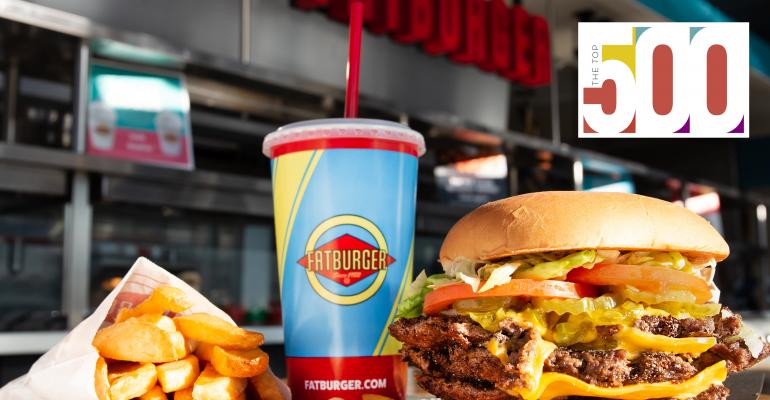Beverly Hills, Calif.-based fast-casual burger brand Fatburger — subsidiary of Fat Brands, which also owns Hurricane Grill and Wings, Ponderosa and Bonanza Steakhouses and Elevation Burger — was prepared for the pandemic shutdowns as a pioneer in the delivery and to-go business.
CEO Andy Wiederhorn said Fatburger was among the first burger brands to partner with Uber Eats when the company was trialing its third-party delivery app. Fatburger’s digital readiness gave the brand an edge during the pandemic, as the company closed 2020 with unit growth of 19.2%, from 77 to 93 stores.
“Our growth has been consistent in a pipeline that we've worked on very hard full-time,” Wiederhorn said. “So it isn't just like we made a pivot in the middle of COVID. It was something that was in process.”
But Fatburger is only one piece of the puzzle for Wiederhorn’s larger strategy for Fat Brands as a whole. One key aspect of the company’s overall growth strategy is virtual restaurants, which operate out of Fat Brands’ kitchens. The virtual brands first launched in April 2020 and grew rapidly.
“We have three-dozen virtual restaurants today,” Wiederhorn said. “We can sell chicken wings out the back door of a Fatburger, for example. That enables those operators to make more money, and it doesn't confuse the customer in the restaurant, because it's only for delivery, and it's going out the back door with different packaging and different ingredients.”
 Growth through acquisitions is also a crucial part of the overall Fat Brands strategy. In September 2020, Fat Brands acquired the Johnny Rockets brand from Sun Capital Partners and vowed to take the diner brand back to its retro-style roots, doubling the company’s portfolio in size from 350 to almost 700 restaurants.
Growth through acquisitions is also a crucial part of the overall Fat Brands strategy. In September 2020, Fat Brands acquired the Johnny Rockets brand from Sun Capital Partners and vowed to take the diner brand back to its retro-style roots, doubling the company’s portfolio in size from 350 to almost 700 restaurants.
“It was a little gutsy [to purchase a company in the middle of a pandemic],” Wiederhorn said. “But it turned out well for us.”
He said the company is looking toward more acquisitions in the near future, possibly in the pizza, salad, coffee and dessert spaces, to “round out the portfolio.” Fat Brands has also thus far sold more franchises in the first six months of 2021 than in 2019 and 2020 put together.
But growth can only occur with a strong leadership strategy, which is especially crucial during a pandemic. Wiederhorn said that his franchisees had to be “nimble and creative” to survive and thrive during the pandemic — for example, being able to quickly pivot to menu trimming if a menu item is not selling or has become too expensive due to rising supply chain costs.
“We view our franchisees as even more important than the customers, so their success is critical,” Wiederhorn said. “We coached them on getting the PPP loans, the PPE, supply chain resources and just being a partner with those franchisees and keeping them constantly updated. […] We're not running the restaurants; the franchisees are running the restaurants.”
Contact Joanna at [email protected]
Find her on Twitter: @JoannaFantozzi
Read more:
The Top 500 report is presented by Nation’s Restaurant News and Datassential, using insights from Datassential’s proprietary Firefly platform. Datassential’s Firefly is the ultimate strategic tool — No. 1 operator database, lead generator, customer marketing and intelligence platform, all-in-one. Learn more about getting complete access at datassential.com/firefly






